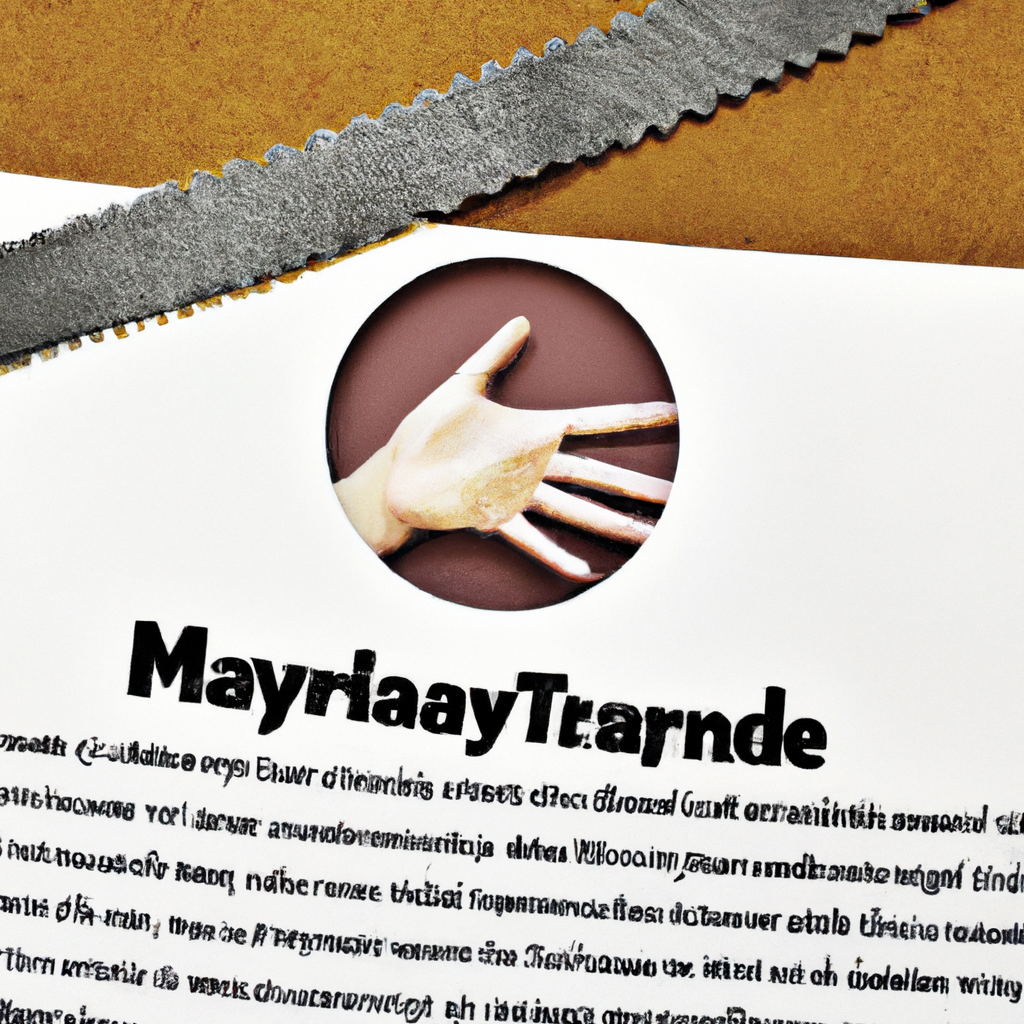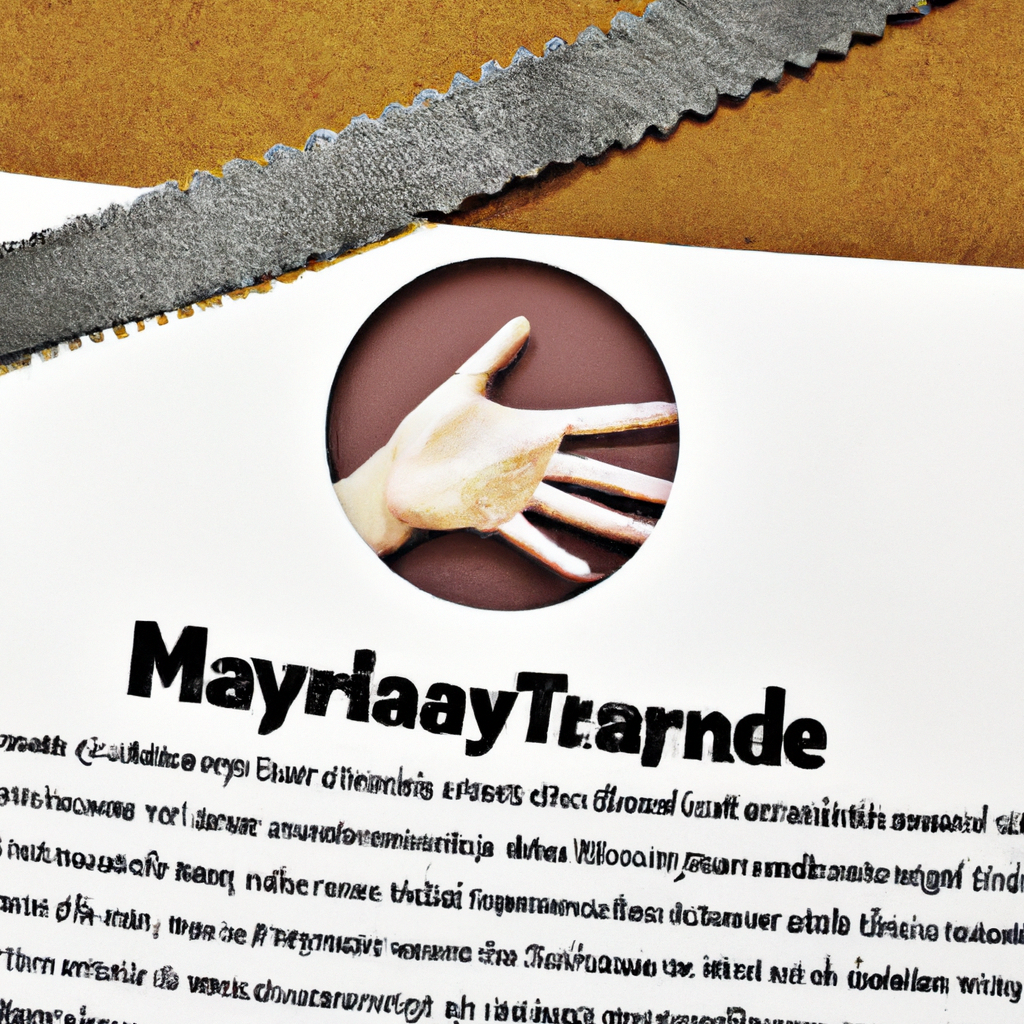Have you ever wondered about the peculiar laws that exist in different parts of the world? Well, you’re in for a treat because today we’re going to explore the fascinating realm of Maryland’s strange laws. From forbidding the sale of turtles with a shell diameter of less than four inches to prohibiting sleeveless shirts in public parks, Maryland has its fair share of unusual regulations. So, get ready to be entertained and astonished as we uncover and unravel the intriguing realm of the strange laws in Maryland.

Laws Related to Animals
Elephants Must Park Downtown
When it comes to elephants, Maryland has an interesting law that you probably wouldn’t expect. As bizarre as it sounds, elephants are actually required to park downtown in certain parts of the state. While elephants roaming the streets of urban areas may seem like a scene from a circus, this unique law reflects the historical importance of elephants in Maryland’s cultural heritage.
Be Ready for the Horses
Maryland has an abundance of beautiful horse farms and a thriving equestrian community. So, it’s no surprise that the state has a law specifically related to horses. According to the law, if you are driving and come across a horse on the road at night, you are required to turn off your headlights and sound your horn to alert the rider and avoid startling the horse.
This law aims to ensure the safety of both horses and riders, as sudden bright lights can spook horses and lead to accidents. So, if you find yourself driving in Maryland’s rural areas at night, be sure to keep an eye out for horses and follow this law to prevent any unnecessary harm.
Don’t Cry Over Dead Birds
While it’s no secret that people have strong emotions when it comes to animals, Maryland takes it one step further with a law specifically addressing dead birds. According to this law, it is illegal to cry over a dead bird in Baltimore.
While the reasoning behind this law may remain unclear, it serves as a reminder that some laws may have peculiar origins or symbolism. So, the next time you come across a deceased bird in Baltimore, remember to keep a stiff upper lip to avoid any potential legal complications.
Historical Laws
Women Riding Sidesaddle
In the realm of historical laws, Maryland has its fair share of intriguing ones. At one point in history, there was a law that required women to ride sidesaddle when on horseback. This law reflects the social norms and expectations of the time, where women’s behavior and appearance were closely regulated.
While this law is no longer in effect, it serves as a reminder of the progress that has been made in terms of gender equality. Nowadays, women have the freedom to choose how they ride horses, whether it be sidesaddle or in any other manner that they feel comfortable and safe.
No Whistling on Sundays
For those who enjoy a good whistle, Maryland had an unusual law in the past that prohibited whistling on Sundays. While the reason behind this particular law is unknown, it is likely that it was influenced by religious beliefs and the desire to maintain a peaceful, solemn atmosphere on Sundays.
Though this law may seem archaic and irrelevant in today’s society, it sheds light on the importance of understanding historical context and how societal norms and customs can shape legislation. So, if you find yourself in Maryland on a Sunday, keep your whistling to a minimum to honor the spirit of this peculiar law.
Decoding Dog Tax Laws
In the past, Maryland had a unique law that required dog owners to affix a metal tag to their pet’s collar, which included their name, address, and the amount of the dog tax that had been paid. This law aimed to regulate dog ownership and ensure that owners were complying with tax obligations.
While this law may seem cumbersome in today’s digital age, it serves as a reminder of the importance of responsible pet ownership and the need to contribute towards society’s welfare. Nowadays, dog ownership is still regulated, but the methods of compliance have evolved, making it easier for owners to register their pets and contribute to their communities.
Transportation Laws
Cars That Run without Horses Must Send Someone Ahead with A Red Flag
In the early days of the automobile, Maryland had a unique law regarding vehicles that were not powered by horses. According to this law, drivers of horseless carriages, as they were called back then, were required to have someone walk in front of the vehicle, waving a red flag to warn pedestrians and other road users.
While this law may seem absurd by modern standards, it was enacted to mitigate the potential dangers posed by these new, unfamiliar machines. As technology advanced and vehicles became more widely accepted, this law was eventually repealed.
To Hail a Taxi, You Must Say ‘Charley’
In the realm of peculiar transportation laws, Maryland once had a law stating that in order to hail a taxi, individuals had to shout the name ‘Charley’. The reasoning behind this law remains unclear, but it most likely arose from a combination of tradition, local slang, or even a practical joke.
Regardless of its origins, this law eventually faded away and is no longer enforced today. So, next time you find yourself needing a taxi in Maryland, you can safely disregard the outdated requirement of calling out ‘Charley’ and simply raise your hand to flag one down.
Jumping Off a Moving Train
In the realm of transportation laws, Maryland had a surprising one at a point in history. It was illegal to jump off a moving train within the state’s boundaries. Though it may seem like common sense to avoid such a dangerous act, this law highlights the need for explicit legislation to deter risky behaviors that can lead to harm or inconvenience for both individuals and the community.
While this law may no longer be in effect, it serves as a reminder of the importance of personal safety and adhering to common sense guidelines when it comes to transportation.
Strange Legal Terms
Chucking Corn on the Streets
Maryland, like other states, has its fair share of strange legal terms. Take, for example, the term “chucking corn on the streets.” This peculiar phrase refers to the act of throwing corn on the streets, which is prohibited by law.
Though the specific reasoning behind this law remains uncertain, it is likely that it originated as an attempt to prevent waste, preserve cleanliness, or discourage large groups of birds from becoming a nuisance in urban areas. So, the next time you find yourself with a bag of corn in Maryland, make sure to resist the temptation to chuck it onto the streets!
Bragging about Your False Teeth
In the realm of strange legal terms, Maryland has a law that prohibits bragging about false teeth. While it may seem odd to regulate something as specific as boasting about dentures, this law likely arose from a desire to promote modesty and discourage unnecessary vanity.
Though the enforcement of this law is questionable, it reminds us that social norms and values can sometimes find their way into legislation, shaping the behaviors and expectations of individuals within a society.
Expelling or Charging Reptiles
Maryland has a unique law related to reptiles that prohibits the expulsion or charging of these cold-blooded creatures. Although the intent behind this law is unclear, it likely serves to protect reptiles from unnecessary harm or mistreatment.
Whether this law was enacted due to an incident or perceived threats to reptiles, it underscores the importance of treating all animals with respect and understanding. So, if you come across a reptile in Maryland, it’s best to leave it be and adhere to this unusual law.

Clothing-related Laws
Wearing a Shirt that Exposes Arms or Legs
Maryland has had its fair share of unique clothing-related laws. In the past, it was illegal for individuals to wear shirts that exposed their arms or legs. This particular law likely originated from conservative societal norms and a desire to enforce modesty in public.
With changing fashion trends and shifting attitudes towards clothing, this law is no longer enforced. Individuals now have the freedom to express themselves through their fashion choices while still being mindful of appropriate attire for specific settings. So, next time you visit Maryland, feel free to wear your sleeveless shirt or shorts without worrying about breaking any laws.
Camouflage Leggings and Reflective Jackets
Another interesting clothing-related law in Maryland pertained to the wearing of camouflage leggings and reflective jackets. It was once illegal to wear this combination of clothing items, with the specific reasoning behind this law remaining unknown.
While this law may have been driven by concerns related to public safety or mistaken identity, it has since become outdated and is no longer enforced. Individuals in Maryland are now free to don their camouflage leggings and reflective jackets without fear of legal repercussions.
Miscellaneous Laws
Lion Attending Public Theater
In the realm of miscellaneous laws, Maryland had a unique one that stated a lion was not allowed to attend public theaters. While the likelihood of a lion casually strolling into a theater may seem far-fetched, the origins of this law may have been influenced by safety concerns and the desire to prevent any potential accidents or disturbances.
Though this law may seem whimsical or outdated, it demonstrates the important role that common sense and safety play in shaping legislation. So, if you ever come across a lion in Maryland with tickets to a theatrical performance, kindly inform them that they will have to wait until after the show.
Whaling on Sunday
Maryland once had a law that prohibited whaling on Sundays. While this may seem impractical since Maryland is not typically associated with whaling, this law may have been implemented to align with religious customs and traditions that emphasized the observance of Sundays as a day of rest.
Though whaling is not a common practice in Maryland today, this law highlights the historical context of legislation and the ways in which societal norms, religious beliefs, and cultural practices can influence legal restrictions.
Potential Penalty for Swearing
Maryland had a long-standing law that imposed potential penalties for swearing or using profane language in public. This law aimed to maintain public decorum and uphold standards of politeness and respect in social interactions.
While the enforcement of this law may have dwindled over time, it serves as a reminder of the importance of maintaining civility and considering the impact of one’s words on others. So, next time you find yourself in Maryland, think twice before unleashing a string of expletives in public.

Food-related Laws
No Dyes in Butter
Maryland once had a law that prohibited the addition of dyes to butter. While it may seem odd to regulate the color of butter, this law likely originated from concerns related to food safety, quality, and consumer protection.
Ensuring that food products are free from unnecessary additives or potentially harmful substances serves to safeguard public health and promote transparency in the marketplace. So, the next time you reach for a stick of butter in Maryland, rest assured that it is free from any artificial coloring.
Buying or Selling Apple Butter
In the realm of food-related laws, Maryland had an intriguing one regarding apple butter. At one point, it was illegal to buy or sell apple butter within the state. The reasoning behind this prohibition remains unknown, but it may have been influenced by concerns related to food quality, taxation, or economic factors.
Though this law may have been rooted in historical circumstances that are no longer applicable, it underscores the dynamic nature of legislation and the need for periodic review to ensure its relevance in a changing society.
Alcoholic Beverage Laws
Drinking Beer While Standing on Your Head
In the world of peculiar alcoholic beverage laws, Maryland once had a law prohibiting individuals from drinking beer while standing on their heads. While the exact reason for this prohibition is unclear, it likely emerged as a precautionary measure to prevent accidents or excessive alcohol consumption.
Though this law may seem lighthearted and humorous, it is a reminder of the need to consume alcohol responsibly and be mindful of one’s actions. So, the next time you enjoy a refreshing beer in Maryland, it’s best to keep both feet firmly planted on the ground.
Don’t Send Beer through a Pipe
Maryland had a particularly unique law related to the transport of beer. It was illegal to send beer through a pipe. While the intention behind this law is not explicitly stated, it likely aimed to prevent the adulteration, contamination, or inappropriate handling of beer during transportation.
Though this law may have lost its relevance over time, it highlights the importance of maintaining the integrity and quality of alcoholic beverages. So, the next time you plan to transport beer in Maryland, make sure to choose a more conventional means of delivery.

Laws for Public Conduct
Using Profane Language on Air
In the realm of public conduct laws, Maryland has a legislation related to the use of profane language on air. It is illegal to use explicit, vulgar, or offensive language that may offend or harm public decency. This law applies to all public communications, including broadcasting and telecommunications.
The aim of this law is to maintain a respectful and inclusive environment for all individuals, regardless of age or sensitivities. It reinforces the importance of responsible communication and respects the diverse nature of society. So, if you find yourself being interviewed or broadcasting from Maryland, remember to choose your words wisely and be mindful of the impact they may have on your audience.
Fishing in Pyjamas
Maryland has an intriguing law that prohibits individuals from fishing in pyjamas. While the reasoning behind this law may not be explicitly stated, it likely arises from the desire to maintain an appropriate and respectful appearance in public spaces.
Though the enforcement of this law may be minimal, it serves as a reminder to dress appropriately and considerate of social norms while engaging in recreational activities. So, next time you plan to go fishing in Maryland, leave your pyjamas at home and opt for more suitable attire.
Educational and Intellectual Property Laws
Throwing Baked Goods During Recess
Maryland once had a law that prohibited the throwing of baked goods during school recess. While it may sound like a peculiar regulation, this law likely aimed to prevent accidents, injury, or waste of food.
Though the enforcement of this law may seem unnecessary in modern times, it reminds us of the importance of creating safe and respectful educational environments. So, the next time you’re tempted to toss your cupcake during recess in Maryland, remember to savor it and comply with this unusual, but sensible law.
Unauthorized Import of Textbooks
Maryland has an educational law that prohibits the unauthorized import of textbooks. This law supports the intellectual property rights of authors, publishers, and educational institutions. It aims to prevent copyright infringement, unauthorized distribution, or exploitation of educational resources.
Respecting intellectual property rights not only protects the hard work and creativity of content creators, but it also fosters a fair and sustainable educational environment. So, next time you’re considering importing textbooks into Maryland, ensure that you comply with the necessary legal requirements and respect the rights of the original creators.
In conclusion, Maryland boasts a fascinating collection of strange laws that span various areas of life. From peculiar rules about animals and transportation to regulations on public conduct and intellectual property, these laws offer a glimpse into the state’s historical context, cultural values, and societal norms. While many of these laws may seem outdated or irrelevant in today’s society, they provide an intriguing look into the evolution of legislation and the ways in which laws can shape our behaviors and interactions. So, whether you’re a resident or a visitor in Maryland, be sure to familiarize yourself with these laws, respect their origins, and enjoy the unique charm they add to the state.


